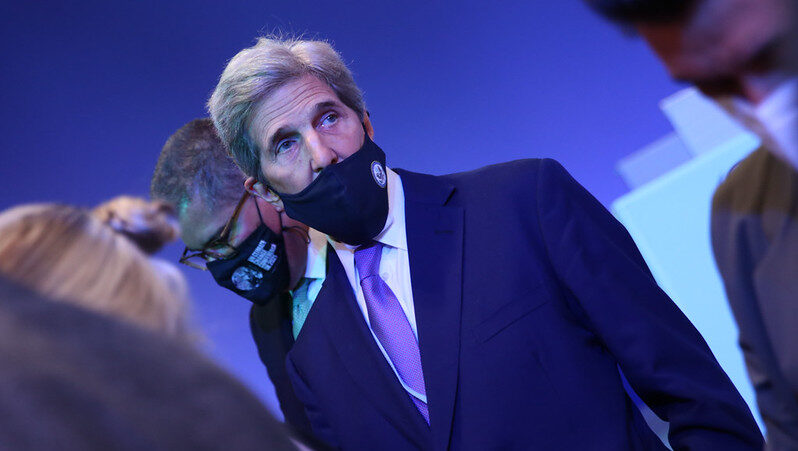As Russian shells rain down on Ukraine and politicians globally try to curb soaring energy prices, by clean or dirty means, it’s a good month to bury bad news.
News like the US massively underdelivering on its climate finance pledge to developing countries.
Joe Biden won favourable headlines last year for doubling, then redoubling the US pledge to $11.4 billion a year by 2024. That was critical to projections a collective $100 billion target could be belatedly met in 2023.
Congress seemed to be on board, with draft legislation scaling up the budget. But when it was finalised, the appropriations bill had just $1bn in 2022 for the developing world to cut carbon and cope with climate impacts – and nothing for the Green Climate Fund.
At that rate, WRI’s Joe Thwaites calculated, it would take until 2050 to reach the modest $11.4bn goal – which already fell far short of the US’ “fair share” of $45-50bn.
The figure could be supplemented from general State Department pots, agency spending or “mobilised” private sector funds. But as a starting point, it does not suggest an administration that is prioritising climate cooperation.
Despite this, US climate envoy John Kerry assured the UN security council the $100bn target would “absolutely” be met in 2023. We’ll believe it when we see it.
This week’s news…
- Science Based Targets initiative kicks out oil companies, delays validation criteria
- Carney, Kyte oversee carbon offset rules to address greenwashing concerns
- Some EU members turn back to coal to cut reliance on Russian gas
- Plastics resolution tees up battle over oil industry’s plan B
- As EU leaders split on Russian energy sanctions, Commission moots 5-year plan
- Will Nigeria’s climate change law put the brakes on gas flaring?
- ‘Betrayal’: US approves just $1bn climate finance for developing countries in 2022
Oil-free futures
Oil companies might be enjoying windfall profits right now, but their social licence to operate is fragile.
The Science Based Targets initiative, seen as a gold standard-setter for corporate climate targets, has hit a wall in developing criteria for the oil and gas sector.
It is kicking out five oil companies that had “committed” to making science-based targets until such time as academics, campaigners and oil execs can agree on a credible methodology.
To climate analysts, it’s simple: fossil fuel producers need a plan to stop producing fossil fuels. The industry’s plan B, to sell unburnable oil as feedstock for plastics, is also threatened by a planned plastic pollution treaty.
Oil companies, on the other hand, see high prices as a cue to drill for more. That’s quite a gap to bridge.
“Our collective addiction to plastics has to end and the $500bn-plus global plastic production industry will need to readjust to this new reality.”
Malik Amin Aslam, climate minister of Pakistan
Carbon offset backtracking
The cheap way for polluters to legitimise their business models has always been carbon offsetting – and demand for credits on the voluntary carbon market is soaring.
But a taskforce led by Mark Carney to scale up the market came in for heavy criticism. Jennifer Morgan, the former Greenpeace chief who started as Germany’s climate envoy this week, denounced it as a “scam”.
It has belatedly convened a council to assure the environmental integrity of projects, which is due to report in the third quarter of 2022. “We need to address the factors that undermine confidence and transparency and that opened the door to widespread concerns about greenwashing,” said co-chair Hugh Sealy.
A separate initiative co-chaired by Rachel Kyte will look into the role of buying emissions reductions in corporate net zero and carbon neutral claims.
2.7 million barrels a day
The amount of oil that could be saved in advanced economies by measures including lower speed limits and car pooling, according to the International Energy Agency
